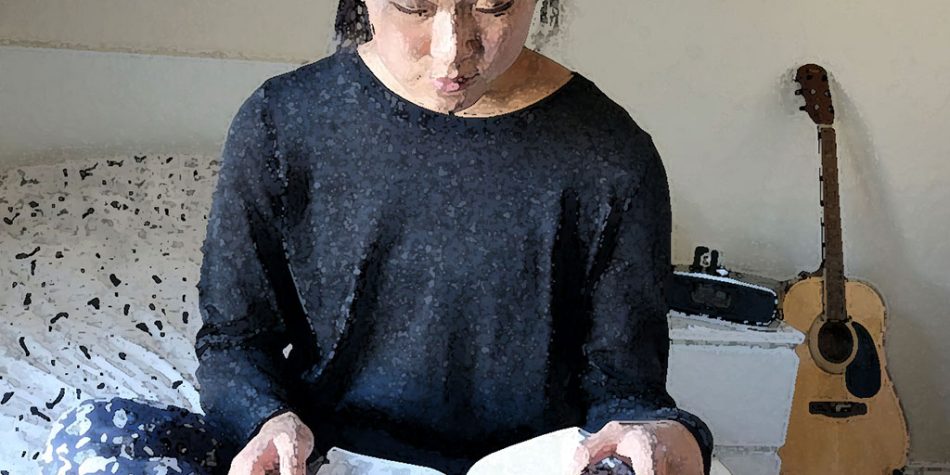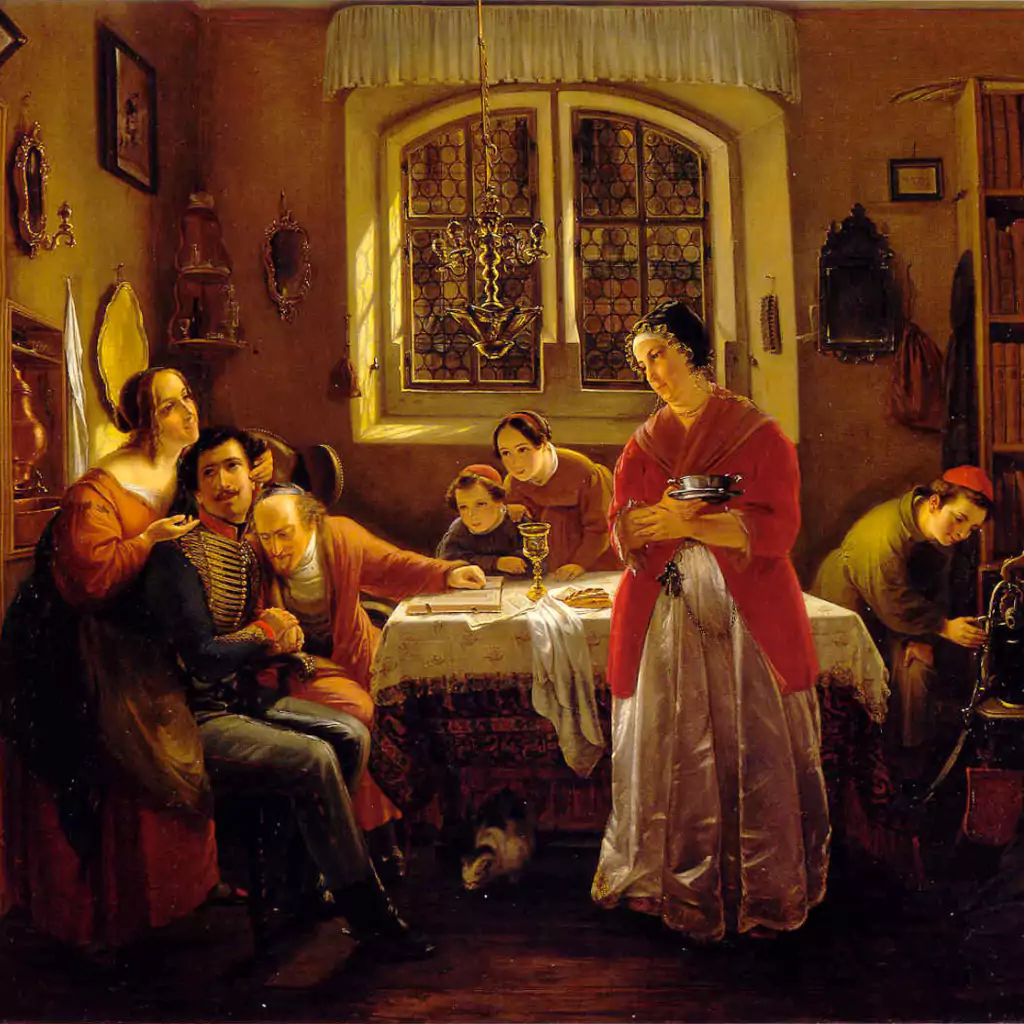Our friend and colleague Yaxin (yah-SHEEN) Lu was born and raised in mainland China and hit young adulthood during the era of the Tiananmen Square massacre in 1989. It served as a stark reminder that freedom—political, religious, or ideological—was severely constrained. Yaxin converted to Christianity and a combination of faith, family, hope, and opportunity for her and her husband—also a Christian convert—led them to the United States. Their decision to act on the belief that God had more than one child for her and her husband burned the bridge between her and her native land, given the one-child policy of the time.
In spite of needed improvements with her English, Yaxin’s stellar math scores and skills helped yield an opportunity to pursue graduate education in family studies at Louisiana State University. Her desire was to capture and convey, through research, the influence of Christian faith in Asian American immigrant families like her own.
As a part of the American Families of Faith research project—a 20-year effort to interview nearly 300 racially, regionally, and religiously diverse families in healthy long-term marriages—Yaxin took nearly three years and conducted in-depth interviews with 18 Chinese families. Most of these interviews were done in Mandarin. Yaxin painstakingly transcribed and translated each one (families from Japan, Korea, and Taiwan were later interviewed as well).
“Church has become a necessary and very important part of our life.”
In these interviews, Yaxin asked about how faith influenced the marriages, parenting, and coping of exemplary Asian American Christian families. She asked about their journey of faith—with the attendant joys and pains. We are pleased to share a few of the key findings with you, as part of our ongoing American Families of Faith series, focused on fostering deep respect and even a little “holy envy” across religious and ethnic communities.
In overview, we note that in a 2012 national poll by Pew Research Center, 42% of Asian Americans reported an affiliation with a Christian religion. In fact, more Asian Americans reported ties with Christianity than with Eastern religions, such as Buddhism.
Many Asian families encounter challenges after U.S. immigration that may result in loneliness, anxiety, and maladjustment. Common negative experiences include racial discrimination, intergenerational conflict, and acculturation obstacles. However, recent research has demonstrated positive correlations between religious involvement and higher levels of mental health among Asian Americans. Indeed, researchers have repeatedly noted that for Asian immigrants, religious groups can offer a sense of community that supplements but does not replace family, while also providing opportunities for Asian American families to participate in cultural preservation and acculturation programs, as well as multi-faceted relational support.
Conversely, conversion can also bring familial pain and relational strain due to interfaith conflicts that arise when only one person or one generation converts to the Christian faith—especially given the importance of intergenerational ties and elder respect in Asian cultures.
We present our participants’ own experiences in their own voices. One theme that permeated many participants’ discussions of faith was the phenomenon of identifying meaning and purpose in life. A father named Shing (all participant names are pseudonyms) said,
We have faith and [our] faith lets us have special meaning in our life. We know where we come from, where we are going—we know the purpose of life. We are created by God. We know the road … we will [take]. We … give testimony for this special meaning.
Shuang, a father who experienced financial difficulties, said,
When we had low salaries, when we were poor, we gave according to God’s will. God never let us suffer. He is always giving to us … we have lacked nothing. He is the giving God, and it is always He who gives [to] us first.
When asked if her faith has helped her through challenges, a mother named Wan said,
When we lost our first child, I believe it was God’s almightiness that helped us to pass through [it]. In fact, in our daily life, we need peace … from God. … We deliver our burden to God.
These and many other families reported how trust in God offered them a sense of peace in their lives and helped them find comfort during challenges, challenges as profound as enduring a child’s death. Another reported benefit for these families was the teaching, opportunity, and structure their respective churches offered for reaching out and serving others. One husband said,
We are living for glorifying God and benefiting others. We live not for ourselves only—[we do] not focus on our family only. May God bless the others through us. … We will live a life not only for ourselves … but also for others …
Vera, a mother, referred to these acts of being “kind” and “treat[ing] everyone with dignity and respect” as the “Christian values.” Another mother stated that, “The Bible says that giving is better blessed than receiving,” while a third mother emphasized, “The Bible says [to] love one another. Love your neighbors.”
Many referred to their fellow congregational members as “brothers and sisters.” For example, Chongming said, “Church has become a necessary and very important part of our life. [Our] church is a big family. Brothers and sisters are actually in one family. [The] church’s things are our own family’s things.”
In discussing their faith in connection with their marriages, many participants expressed the importance of the scriptural charge to “become one flesh” (Genesis 2:24) and discussed the influence of this teaching. When asked what some of her deepest spiritual beliefs were in relation to marriage, Jiao, said that the Bible teaches:
‘For this reason a man will leave his father and mother and be united to his wife, and they will become one flesh’ (Genesis 2:24, Ephesians 5:31). In this ‘one flesh’ or oneness the boundaries between ‘you’ and ‘I’ should be fused together, and there shouldn’t be the distinction of ‘yours’ and ‘mine’ between a husband and a wife.
Wei, a husband, said, “If you regard your spouse as a part of your body, you will treasure her more and will not regard her as outsider. This is a very important belief.”
A couple named Yue and Kuang explained how they were able to achieve oneness in their marriage by mutually working to be closer to God:
Kuang (husband): Look up [to God]. Just like a triangle, both of us look up to the Lord; the distance between us is more and more narrow [as we draw closer to Him] . . .
Yue (wife): I think God wants us [to] be one. God’s words remind me … the husband and the wife are different individuals, [but] now we have God. [Before our conversion], we were usually unpleasant with each other for some little things such as shopping or education. But now God is above. [My husband] said, “[We should] look up to the Lord. Let God be the Lord of our family.” We have distance, [but] we are closer when we look upon the Lord. There are differences between a man and a woman [but] we will become closer and closer and meet on the spot [where] God is the common center of our life.
While discussing religious beliefs or practices that help reduce marital conflict, Bik, a wife, explained that
The most important lesson I [have] learned is to come to God directly and ask God why we had these problems. God lets me know the faults of mine and where the key problem[s are]. We may have conflicts [still, after our conversion], but how to deal with it is different from before, because our character[s] have been transformed.
Several participants directly referenced the Bible (often via memorized scriptural references) but some also alluded to Jesus’ command to forgive. Zhou and Ping, a Chinese couple said:
Zhou (husband): A lot of people give up [on their] marriages as they get discouraged. … We have to depend on God when we are feeling discouraged, and … not give up.
Ping (wife): [We] really need to practice forgiveness. Jesus said we have to forgive unlimited time[s].
Faith was also a salient influence in parenting. Mei-Fen, a mother, said of her son,
There were several times this year, he said he felt bad when he came back home from school. He wanted me to pray with him hand in hand in his room, and then he felt better. … Prayer has become his practice. [When] he met serious problems, he asked me to pray for him. I asked him what’s wrong when I noticed his depression. [Again], he told me why [he was down] and asked me to pray with him hand in hand. When we pray, he always [has] asked [for] us [to pray together] hand in hand. It seems that he [has] found answers through prayer. I don’t know how to do [this] if we had not believed in God.
One father said,
We know what God wants us to be. We have a goal that we want to be a person that pleases God. We hope our children [will also] … please God. When they grow up, they will glorify God and benefit others. This is [our] central and only [hope for our children].
Asian American Christian immigrant parents’ responses featured at least two variations in parenting style. One group of parents regarded their parent-child relationships to be “equal” and horizontal while another group of parents perceived them to be more vertical/hierarchical. In speaking about their horizontal parent-child relationship, Wei, a father noted, “In our family, I am the father of my son, but we are also brothers. This is very important, and we are equal. I regard him as a little brother, and we grow up together in Christ.”
The second group of parents indicated hierarchical parent-child relationships that emphasize children’s responsibilities to obey and respect their parents. In speaking of obedience, one father said, “Obedience is an important lesson. … Children obey.”
Another father reported that they “teach [their children] to obey and respect” and “explain to [their child] why he should listen to [them].”
One mother referred to “teachings in the Bible” that indicate the need for children to “respect your parents.” She explained that if she does this now, then “my children would learn and know how to treat their parents later.” These latter accounts captured a parental focus on more “vertical” ideals of obedience, respect, and honor of parental authority.
Ultimately, whether parents were more horizontal and egalitarian or more vertical and authority-centered, both groups emphasized their responsibilities to teach their children by setting positive examples for them. A mother named Wan said, “Teaching children is teaching myself. I learn lessons by [obeying God] myself.” A husband named Deshi said,
Parents are the best teacher for their kids. Kids like to imitate parents. Parents have [a] big influence on kids about how to be a human. [If] I said to them do not lie, then I should not lie. … Kids will learn from the model of parents.
Deshi’s comment regarding parenting, faith, and behavior calls to mind Emerson’s statement, “What you do speaks so loudly that I cannot hear what you say.”
In connection with both parenting and marriage, the purpose of this study was to provide greater understanding of how Christian faith influences relationships within Asian American immigrant families. In sum, we see multi-faceted influences of faith on personal, community, marital, and parental levels.
With the increase of the population of Asian American immigrants in the United States, insight regarding how this significant minority adapts, assimilates, accommodates, and engages in religious and familial transformations is an important topic.
For some Asian American families, like the 24 interviewed in our study, their lived religion and family relationships reportedly formed “the center of our lives.”
No other Christian group we interviewed directly cited the Bible with more precision and accuracy.
Two unique features of our sample were that these families were (a) all immigrants to the United States (from mainland China, Japan, Korea, or Taiwan) and (b) adult converts to Christianity (about 20% in their native land, about 80% after immigration to the United States).
Accordingly, one admirable feature of this religious-ethnic community that elicited holy envy from us was their courage to embrace change. These individuals and families literally crossed the globe and entered a new sociocultural world in search of their own vision and version of a better life. Most sought advanced education and/or employment that was rooted in a second or third language.
Further, of these participant individuals and families who converted to Christianity, many made profound and often uncomfortable changes as they adopted a new worldview and way of life.
The costs were, and some cases continue to be, substantial. Having embraced Christianity, however, these families have vigorously held to what they professed to hold dear. The sincerity of their conversions and their convictions was unquestionable.
No other Christian group we interviewed directly cited the Bible with more precision and accuracy. Further, few other groups manifested the level of pragmatic collectivism evident among Asian Christian churches. Examples of this included church members who literally met newly immigrating families at the docks and made extensive efforts to help them to culturally, religiously, and economically adapt to life in a new land. Perhaps no interview captured this collectivism and willingness to serve others than the following explanation from the Choi family:
Haesun (wife): I enjoyed the church in San Diego much better than the one here [on the East Coast].
Interviewer: Why was it special?
Oui (husband): She served a LOT. If someone was coming from Korea and [the person] didn’t have a car or anything, usually my wife would help the person with riding and shopping and with all kinds of stuff. She was kind of busy in San Diego…she was not usually in the house….
Haesun (wife): I had two Bible studies a week and every Friday I served my group dinner in my home .
Oui (husband): 10-20 in the group so it was not easy. We didn’t have enough money but she liked it very much.
Haesun (wife): …We did a lot together. Walks together on the beach. I was very happy there. They needed me and I needed them.
Interviewer: You were happy serving others?
Haesun (wife): Yes, they were happy so I was happy.
We honor this other-centered and service-oriented approach to life reflected by Haesun.
Finally, in spite of their high levels of education and learning, surpassed only by the Jewish families we interviewed, there was a humility among the Asian Christian families that moved us. This humility often included a profound gratitude to be living on American soil.
Each of the different religious-ethnic communities in the American Families of Faith research project features valued additions via differences in perspective and lived experience. This may be especially true with our Asian American Christian families. When one realizes that in 1989, nearly half of the individuals we interviewed were still living in China during the tragic massacre of the June Fourth Incident at Tiananmen Square, we are reminded of the precious nature of religious and political liberty that Asian Christian immigrants to the United States embody.
About the Authors:
In our increasingly diverse (and too often divisive) culture, it can be challenging to have enjoyable conversations or relationships with people with different beliefs and commitments than our own. We hope that the ideas and experiences shared in this special section of Public Square Magazine may help us all to treat others with whom we differ with respect, appreciation, and even admiration.
While we ourselves are active (devoted) members of The Church of Jesus Christ of Latter-day Saints, in our work in the American Families of Faith project, we seek to highlight the strengths of our friends of various faiths. We have developed a sense of deep respect and even holy envy for these families and their faiths. Additionally, the book chapters from which these articles are adapted included two coauthors who are devoted members of those faiths.
If you like listening to audiobooks and podcasts, we have recorded a set of conversations about the families we interviewed that includes additional quotes from mothers, fathers, and youth, more of our experiences in attending their services, as well as personal experiences with friends of other faiths. These podcasts are available at the sites below.
















